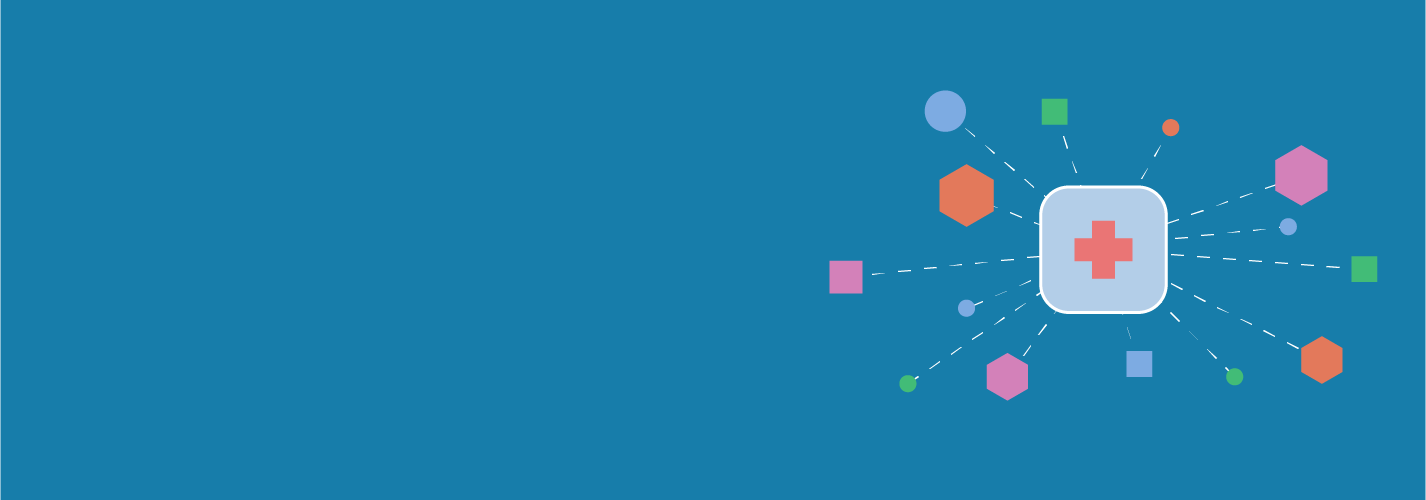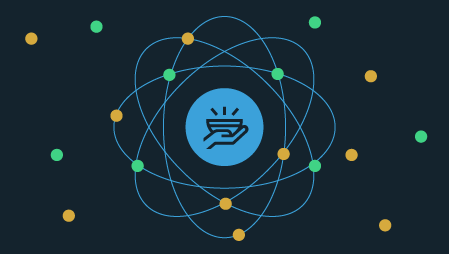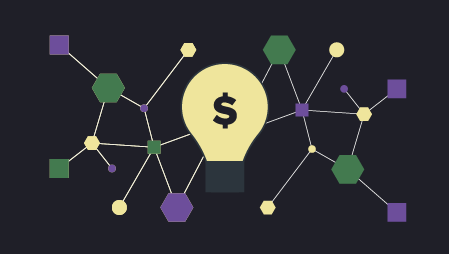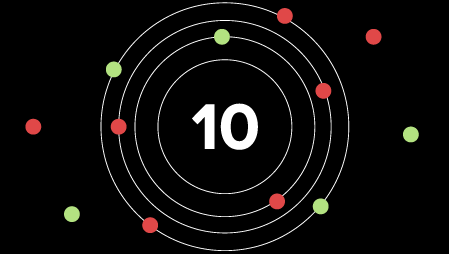The Healthcare sector has been a quick adopter of new technologies, and it continuously innovates and accepts the technological advancements in healthcare information technology with open arms. Since the last decade, we have witnessed many emerging technologies such as Artificial Intelligence, Machine Learning, Augmented Reality, and other healthcare trends stepping into the Healthcare sector.
But, “Internet of Things” has acquired its own space in the healthcare domain.
But do you even know that IOT has such an immense potential in this sector that it came out with its alias? Yes! You heard that right. And this concept has been termed as the “Internet of Medical Things.” Gadgets and applications in this industry improve medicinal services, decrease strain on clinical experts, and permit patients to be treated at home or from emergency clinics.
Business Insider revealed a stat stating that the IOT devices in the health care sector will be more than 161 million units by the end of the year 2020.

The above stats say it all. IoMT has brought a revolution within the healthcare industry, and these IOT enabled devices, sleep monitors, brain sensors, and infant monitoring sensors will change medical care forever.
How is IoT Beneficial for Physicians?
Medical professionals use IoT wearables and other monitoring equipment embedded with IoT to keep track of a patient’s health. Through these tools, they can track the patient’s adherence to treatment plans or if they need any immediate medical attention if required. It enables physicians to be vigilant and interact with patients proactively.
With the help of data collected from IoT devices, doctors and physicians can identify their patients’ best treatment process. Not only the healthcare professionals are benefited by the use of IOT in the healthcare domain, patients, hospitals, and health insurance companies have also made the most of it.
What are the Benefits of IoT in the Healthcare Sector ?

Before the advent of the Internet of things, the patients’ interaction with their doctors was limited to visits, calls, and text communications. There was no particular way doctors or surgeons could continuously monitor the patients’ health and suggest recommendations accordingly.
Monitoring the patient’s health remotely has reduced the length of hospital stay, which further prevents readmission. Implementation of IOT in healthcare has significantly reduced healthcare costs and improved the treatment outcome.
IoT is undoubtedly transforming the healthcare industry by redefining devices’ space and people’s interaction in delivering healthcare solutions. IoT has applications in healthcare that benefit patients, families, physicians, hospitals, and insurance companies.
Here are IoT enabled applications that will empower the connected healthcare space by streamlining the entire process.
IoT Applications for Patients
QardioCore's ECG monitor
QardiCore designed an ECG monitor that consistently provides continuous medical-grade data. It is a wearable device that Patients can wear in their normal lifestyle, whether they are at work, gym, or outside.
With this data’s help, patients can better monitor their health conditions, such as cholesterol, high or low blood pressure. This IOT enabled device sends information to healthcare organizations to control heart troubles, weight gain, and diabetes without the need for physical visits.
SYSTEM ONE for Public Health
Systemtone, a barcode and label systems specialist in Massachusetts, partnered with Vodafone’s global IOT network to transmit medical diagnostics data in real-time to health care professionals and physicians. This will help healthcare workers stay better connected with patients and efficiently manage public health situations, including infectious diseases.
UroSense for Catheterization
It is a catheter fitted with a transmitter that monitors the patients’ urine output and body temperature on doing catheterization. This helps in spotting the signs of infection at the early stage.
This IOT enabled device by UroSense also reports diabetes and prostate cancer conditions to the doctor so that they can create better treatment plans and prevention.
IoT Powered Applications for Chronic Disease Management
PFIZER/IBM
Pfizer and IBM partnered with each other and developed a “Parkinson’s house” integrated with IOT technology sensors. It can track Parkinson’s drugs’ effectiveness, which helps them in necessary dosage adjustments in real-time.
Let’s see how it works. It can detect the minute and smallest variations in a patient’s movement. The sensors are decked on fridge handles, doors, and beds, easily tracking the patient’s slightest movement. This data is then wirelessly transmitted to the lab scientists to better analyze the patient’s medical responsiveness and progress.
EIGHT for SmartSleep
Eight pairs is a comfortable mattress that comes embedded with sleep and an environment sensing app that can analyze the data collected through it. It then sends the received data to the user’s smartphones. After viewing the data, the patients or the user can determine the ideal sleep temperature required for his/her sound sleep.
Have a look at its industrial application in the domain of the healthcare industry. This IOT application named as Eight comes with a sleep coach feature that syncs easily with the company’s smart mattress. It can also be integrated with a smart light, door locks, and Amazon Alexa.
BEDDIT
Beddit is an Apple-owned company whose IOT application aims to improve its patient’s sleeping quality. The Bluetooth connected sleep monitor tracks heartbeat, breathing, snoring, and sleep environment of the patient.
Industry impact: Apple Watches don’t yet have a sleep tracking function, but industry experts hope its 2017 acquisition of Beddit means that it will change shortly.
IOT Applications that Streamlines Hospital Care
STANLEY HEALTHCARE
Stanley’s healthcare technology developed an IOT application that facilitates patients’ real-time location through a wireless radio frequency identification (RFID). This helps healthcare providers monitor them more quickly and in a personalized manner based on their individual needs.
Industry impact: The Missouri Delta Medical Center in Sikeston, introduced a Stanley’s AeroScout Links platform that can monitor temperature-humidity conditions in the hospital wirelessly and elsewhere, including refrigerators, freezers, incubators, and procedure rooms.
G.E. HEALTHCARE
GE Healthcare industry firstly introduced its Auto bed system at it’s New York Mt.Sinai Hospital that can connect, track, and monitor hospitals’ 1200 beds and process 80-bed requests at a time. It also enables the healthcare sector to track other requirements, such as nurse proximity.
The hospital care providers can accurately know the bed’s location, and when the patient from a bed will be discharged. It has proved to be very useful for the hospital’s E.R. patients as it has reduced the emergency room wait times by several hours.
Eases the Remote Care and Monitoring Process
HONEYWELL' GENESIS TOUCH
Honeywell introduced Genesis Touch, an IOT application that helps patients connect with remotely located healthcare providers who can access the transmitted biometrics data by visiting the patient’s dashboard.
This IOT application can even host the video visits, give multiple providers access to a patient’s vital statistics, and be integrated with a blood pressure monitor, an oximeter, and a precision health scale.
ENSA
This IOT application by Ensa syncs the health history of it’s patient and biometric sensors to provide recommendations on wellness and supplements.
One of the major industrial applications of this IOT came into light in the year 2017 when Ensa partnered with Dexcom to continue glucose monitoring for those with diabetes and related health conditions.
Propeller's Breezehaler
Propeller Health System developed an IOT enabled Breezehaler device that makes the management of heart diseases like asthma and COPD ( Chronic Obstructive Pulmonary Disease) much easier.
The sensor is attached to the top of the pump through which it monitors the data each time when it is used. The patient can easily collect the data when it triggers all from a mobile app. This, in turn, reduces the count in asthma attacks and increases the number of symptom-free days.
Conclusion
Industries have already adopted smart healthcare by implementing and using these IoMT devices. And, yes! The healthcare sector is excited to see where these IOT-enabled devices will take them next to, where applications, wearables, and smart connected devices become as ordinary as taking a pill.
IoT has applications in healthcare that benefit patients, families, physicians, hospitals, and insurance companies. It has transformed the healthcare industry by redefining device’s space and people’s interaction in delivering the solutions.
The IOT app development has proved to be a differentiator in the increasingly connected healthcare sector. If you also want to bring this transition into your medical management system, get in touch with a top IoT app development company and step towards your healthcare industry’s smart future.





